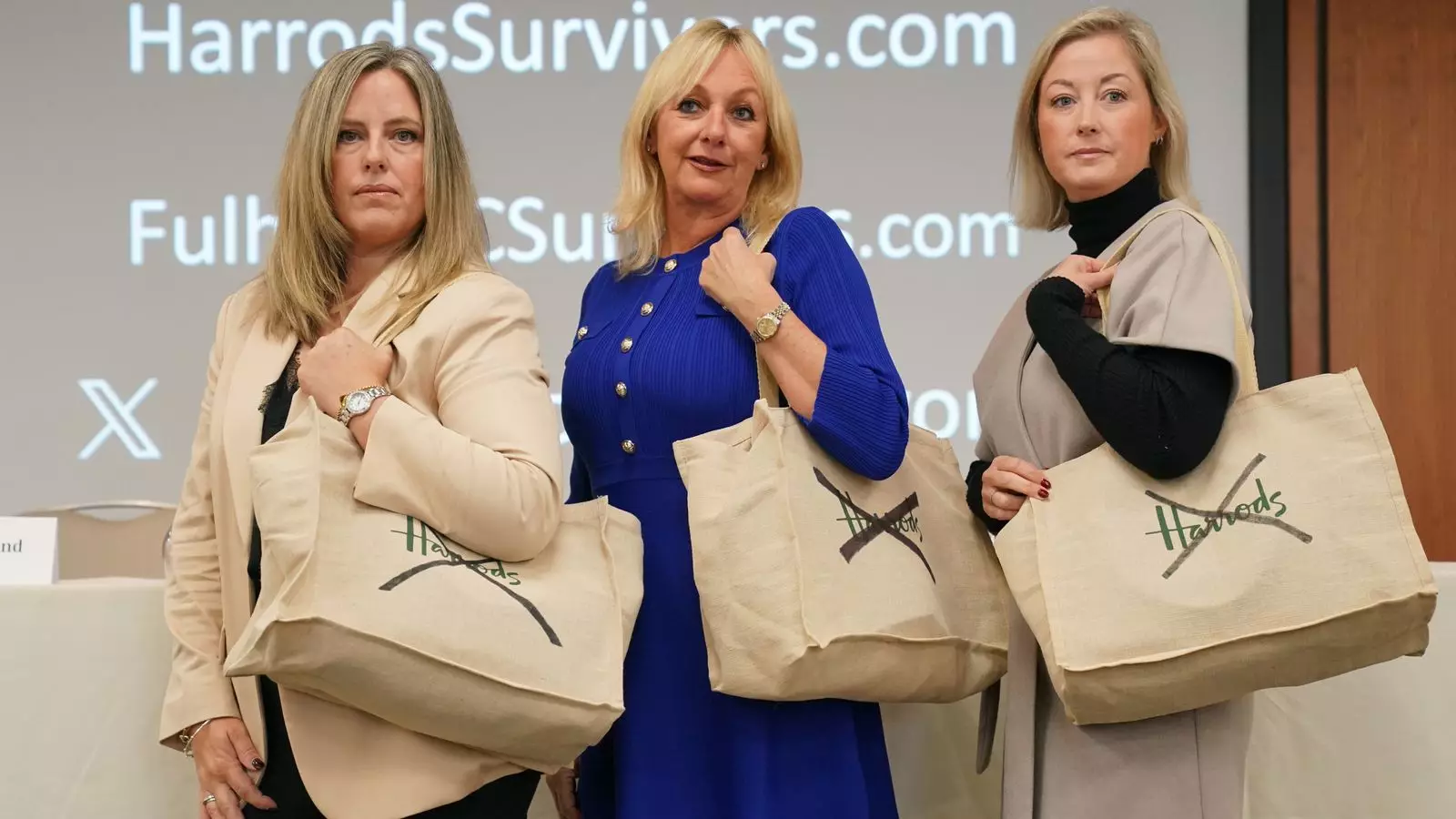In an unsettling revelation, the Justice for Harrods Survivors group has disclosed that over 400 individuals have reached out to them regarding their experiences with Mohamed al Fayed. As a figure previously at the helm of prominent establishments like Harrods and Fulham FC, Fayed’s recent death has sparked a torrent of accusations ranging from sexual abuse to heinous acts of serial rape. This influx of testimonies has laid the groundwork for what could potentially be one of the most significant cases of corporate sexual misconduct in modern history. The sheer volume of claims—from alleged victims to witnesses—paints a grim picture of Fayed’s legacy, transforming it into a focus of serious public scrutiny and legal action.
The group’s pronouncement, led by lawyers Dean Armstrong KC, Bruce Drummond, and Maria Mulla, signals a critical moment in their fight for justice. Armstrong reported that the inquiries are not limited to survivors; they include witnesses who may have information vital to the unfolding narrative of abuse. This complexity emphasizes a systemic issue, where Fayed’s influence and connections may have perpetuated an environment conducive to exploitation.
What constitutes being on the precipice of comprehensive legal action is now materializing with the sending of the first formal letter of claim to Harrods. This letter marks the beginning of a protracted legal battle that promises to unveil a pattern of behaviors indicative of a more significant crisis within Fayed’s sphere of influence. Armstrong’s statement concerning hundreds more letters on the way signifies an impending flood of legal documentation that may overwhelm institutions connected to Fayed, forcing them to reconcile with this dark chapter.
The individuals who have come forward represent a wide array of geographic locations, signaling that Fayed’s alleged abuse was not restricted to the UK alone. Reports suggest claims originating from countries as diverse as the US, Canada, Australia, and several European nations. This international scope gives weight to Armstrong’s assertion that the abuse appears to function on an “industrial scale,” underscoring the need for widespread awareness and outrage.
The narratives brought forth paint a picture not merely of an individual predator but of a culture that seemed to support and enable such exploitation. Drummond’s declaration that the abuse could only have been facilitated by a system that allowed such actions to occur raises serious questions about corporate responsibility and ethical governance. If true, these allegations suggest not only personal misconduct but also a failure on the part of multiple organizational bodies to protect vulnerable individuals.
Fayed’s alleged conduct appears to have extended beyond the walls of his businesses, implicating various locations—his personal residence, private yacht, and even luxury hotels. This breadth adds a layer of complexity to the legal situations unfolding. The claim that “every young lady in his orbit was a target” starkly underlines an alarming level of predatory behavior that should catalyze immediate societal and legal reform.
Among the allegations is a particularly poignant testimony from Bianca Gascoigne, who claims to have been groomed and assaulted during her time at Harrods. This represents just one voice in a chorus of supposed victims who have now organized to seek justice. Additionally, former Fulham Women’s captain Ronnie Gibbons has disclosed her traumatic experiences, amplifying the urgent need for accountability. Each account serves as a reminder of the human cost of such egregious acts and the pervasive nature of such abuse in environments where power dynamics skew heavily.
The responses from Harrods, stating they are “utterly appalled” and emphasizing their transformation since Fayed’s tenure, suggest an organization eager to distance itself from the accusations. However, as legal proceedings advance and more survivors come forward, the scrutiny on both Harrods and any associated entities will only intensify, making it imperative for these organizations to confront their past and the legacies left by their former owners.
The unfolding events surrounding Mohamed al Fayed raise critical ethical questions and shine a much-needed spotlight on the systemic issues that allow such abuses to persist. As the legal processes begin to unravel the extent of these allegations, the impact on institutional practices and survivor advocacy will resonate far beyond the immediate case, revealing truths that demand collective action and reform.


Leave a Reply